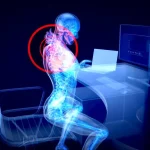Healthcare professionals are held to high standards of conduct, and in Texas, nurses and doctors face a rigorous disciplinary process when complaints or allegations arise. Whether the issue involves a medical error, substance use, or a licensing technicality, the impact on a career can be significant. For those navigating such challenges, seeking experienced professional licensing defense is critical to protect their license and livelihood. Understanding how the disciplinary process works helps medical professionals make informed decisions and respond effectively when facing scrutiny.
The Role of Licensing Boards
In Texas, the Texas Medical Board (TMB) and the Texas Board of Nursing (BON) oversee the licensure and conduct of doctors and nurses, respectively. These boards are responsible for maintaining the integrity of the profession and ensuring public safety. When a complaint is filed, the board has the authority to investigate and, if necessary, take disciplinary action. This could range from issuing a warning to suspending or revoking a license.
Both boards operate under strict procedural rules. Once a complaint is received, it is reviewed to determine jurisdiction and whether it alleges a violation of applicable statutes or rules. If jurisdiction is confirmed, the matter proceeds to investigation, where both sides may be asked to submit documentation and respond to inquiries.
Common Triggers for Disciplinary Action
Complaints leading to disciplinary investigations can stem from a variety of sources. Patients, colleagues, employers, or even anonymous individuals may report perceived misconduct. Common triggers include allegations of negligence, prescription drug abuse, unprofessional conduct, criminal charges, or failure to adhere to continuing education requirements.
Even minor errors can be escalated if not handled correctly. For instance, documentation mistakes or delayed reporting can raise red flags during an audit. Sometimes, misunderstandings between patients and providers lead to formal complaints, underscoring the need for clear communication and thorough records.
Investigation and Informal Proceedings
When an investigation is opened, the board typically requests a written response from the licensee. This is a critical phase in the disciplinary process, as the licensee’s explanation may influence the board’s decision on whether to pursue formal charges.
After reviewing the investigative findings, the board may decide the complaint lacks merit and dismiss it. If not, the case may proceed to an informal settlement conference or hearing. This step allows the medical professional and their legal representative to present their side, submit evidence, and negotiate a possible resolution.
The importance of proper legal guidance during this stage cannot be overstated. Working with a seasoned attorney experienced in professional licensing defense often helps in avoiding harsher penalties and resolving issues efficiently.
Formal Hearings and Sanctions
If the informal resolution is unsuccessful, the case moves to a formal hearing before an administrative law judge at the State Office of Administrative Hearings (SOAH). These hearings resemble courtroom trials, with opening statements, witness testimonies, and cross-examinations. After reviewing the evidence, the judge issues a recommendation to the board, which can then accept, reject, or modify the proposal.
Sanctions imposed by the board may include fines, mandatory education, probation, suspension, or revocation of the license. In some cases, professionals may be allowed to continue practicing under supervision or with specific restrictions. These outcomes can affect a career, reputation, and future employment opportunities.
According to a report by the Federation of State Medical Boards, formal disciplinary actions are a small but impactful portion of cases reviewed each year. This underscores the significance of presenting a strong defense early in the process.
Appeals and Reinstatement
If a license is revoked or suspended, the professional may have the right to appeal the decision. Appeals must typically be filed within a specific timeframe and are reviewed by a higher administrative authority or court. The appeal process is complex and benefits from skilled legal representation familiar with Texas administrative law.
Reinstatement of a license after disciplinary action is possible, but it involves meeting all terms set by the board, demonstrating rehabilitation, and often appearing at a reinstatement hearing. Some individuals may be required to complete treatment programs, submit progress reports, or retake licensing exams.
Protecting Your License and Career
Healthcare professionals can take proactive steps to avoid disciplinary issues. Maintaining accurate records, complying with board regulations, and promptly reporting any incidents are essential practices. If a complaint is filed, timely and honest communication with legal counsel can make a significant difference in the outcome.
Working with an attorney who specializes in professional licensing defense ensures that your rights are protected at every stage. They understand the nuances of board rules, evidentiary standards, and procedural requirements unique to the licensing context.
For example, the American Bar Association emphasizes that early legal intervention often results in more favorable resolutions, as attorneys can identify key issues and craft a persuasive defense strategy.
Conclusion
The disciplinary process for nurses and doctors in Texas is structured, detailed, and serious in its implications. From initial complaint to potential sanctions, each step requires strategic responses and comprehensive understanding. With so much at stake, engaging in proper licensing defense is essential to protect both career and credibility. Whether facing a minor complaint or a complex investigation, securing the right guidance helps ensure a fair process and the best possible outcome.







